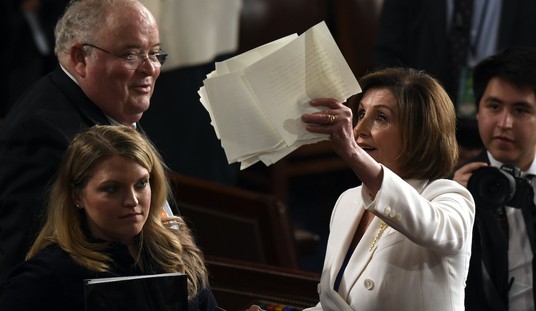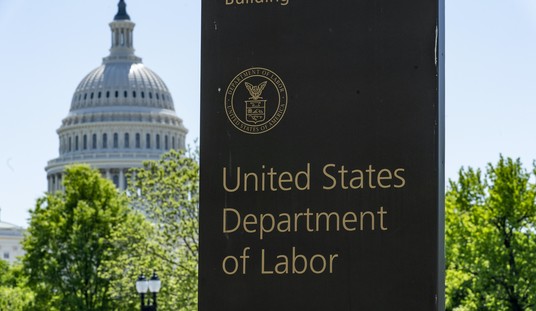Rep. Justin Amash (R-MI) has made a name for himself as an independent voice in Congress, willing to stand apart from his Republican colleagues and even President Donald Trump whenever the issue is in conflict with his libertarian views. Trump’s recent announcement that he would declare a national emergency in order to divert funds to his border wall project is the latest to trigger Amash’s independent streak, and he took to Twitter Friday evening to discuss his objections.
As Amash explained in his tweet thread, our Constitution established a clear separation of powers between the three main branches of government, with the legislative powers firmly within the scope of powers granted to Congress.
A thread on national emergencies and our Constitution:
Congress makes laws.
The president executes laws.
The Supreme Court decides cases.This is our constitutional system.
Congress cannot delegate legislative powers to the president by statute.
— Justin Amash (@justinamash) February 15, 2019
Among those legislative powers is the power to make appropriations. The national budget is supposed to be managed by Congress and not only should they not cede this power to the executive branch, they are not allowed to do so under the Constitution.
Accordingly, Trump’s attempt to declare a national emergency for purposes of redirecting appropriations for the border wall is constitutionally improper. Trump himself admitted as much in his comments to reporters during a White House Rose Garden press conference on Friday.
“I could do the wall over a longer period of time. I didn’t need to do this,” said Trump. “But I’d rather do it much faster.”
Just like former President Barack Obama’s decision to issue executive orders regarding the DAPA and DACA programs because he did not want to wait for Congress was improper, so are Trump’s actions here. The Constitution grants the budgetary power to Congress; there is no exception for the executive branch to swoop in whenever the president is feeling impatient.
Text of Amash’s tweets copied below for ease of reading:
A thread on national emergencies and our Constitution:
Congress makes laws.
The president executes laws.
The Supreme Court decides cases.This is our constitutional system.
Congress cannot delegate legislative powers to the president by statute.
Going back to the Framers of the Constitution, Americans have recognized the president’s inherent power as chief executive to act swiftly in an emergency, especially a sudden attack on the United States. But such power exists only so long as Congress has no opportunity to act.
Over the years, Congress has passed laws to create an orderly process for receding the president’s inherent emergency power as an emergency subsides—the War Powers Resolution and the National Emergencies Act are two examples.
Laws like the War Powers Resolution and the National Emergencies Act are not—and, under our Constitution, cannot be—grants of legislative powers to the president. They were adopted to transition authority back to Congress when unilateral executive action is no longer appropriate.
Congress can make no law permitting the president to assume permanent legislative powers, even in a single area, simply by his declaring an emergency. The president may act quasi-legislatively only in an actual emergency—when Congress has no time to act—and then only temporarily.
Congress cannot turn the executive branch into the legislative branch. Such an effort fails for lack of conformity to our Constitution. The validity of an emergency declaration is limited by the definition of “emergency” itself and cannot be expanded by statutory openness.
Can Congress make a law permitting the president to conduct the entire appropriations process by his declaring an emergency? Of course not. That would impermissibly grant him legislative powers. The same principle applies when addressing a portion of the appropriations process.
Some have replied that Congress still retains legislative powers should the president abuse an emergency declaration. They note that Congress can pass legislation to override the president’s actions. Though true, this arrangement turns the Constitution on its head.
It would mean that a simple majority of each chamber could delegate legislative powers to the president, but only a two-thirds majority or greater could reject their application to a particular case or repeal the delegation altogether.
Congress should (and I will) work to repeal laws that ostensibly grant legislative powers to the president. But even if Congress does no such thing, such laws are void under our Constitution, and any emergency declaration by the president for a non-emergency is likewise void.
Well said, Congressman.
glad to see at least one member of Congress has read the Constitution and still takes it seriously. https://t.co/nDcZi87I8W
— Sarah Rumpf (@rumpfshaker) February 16, 2019
Read my RedState article archive here.
Follow Sarah Rumpf on Twitter: @rumpfshaker.














Join the conversation as a VIP Member